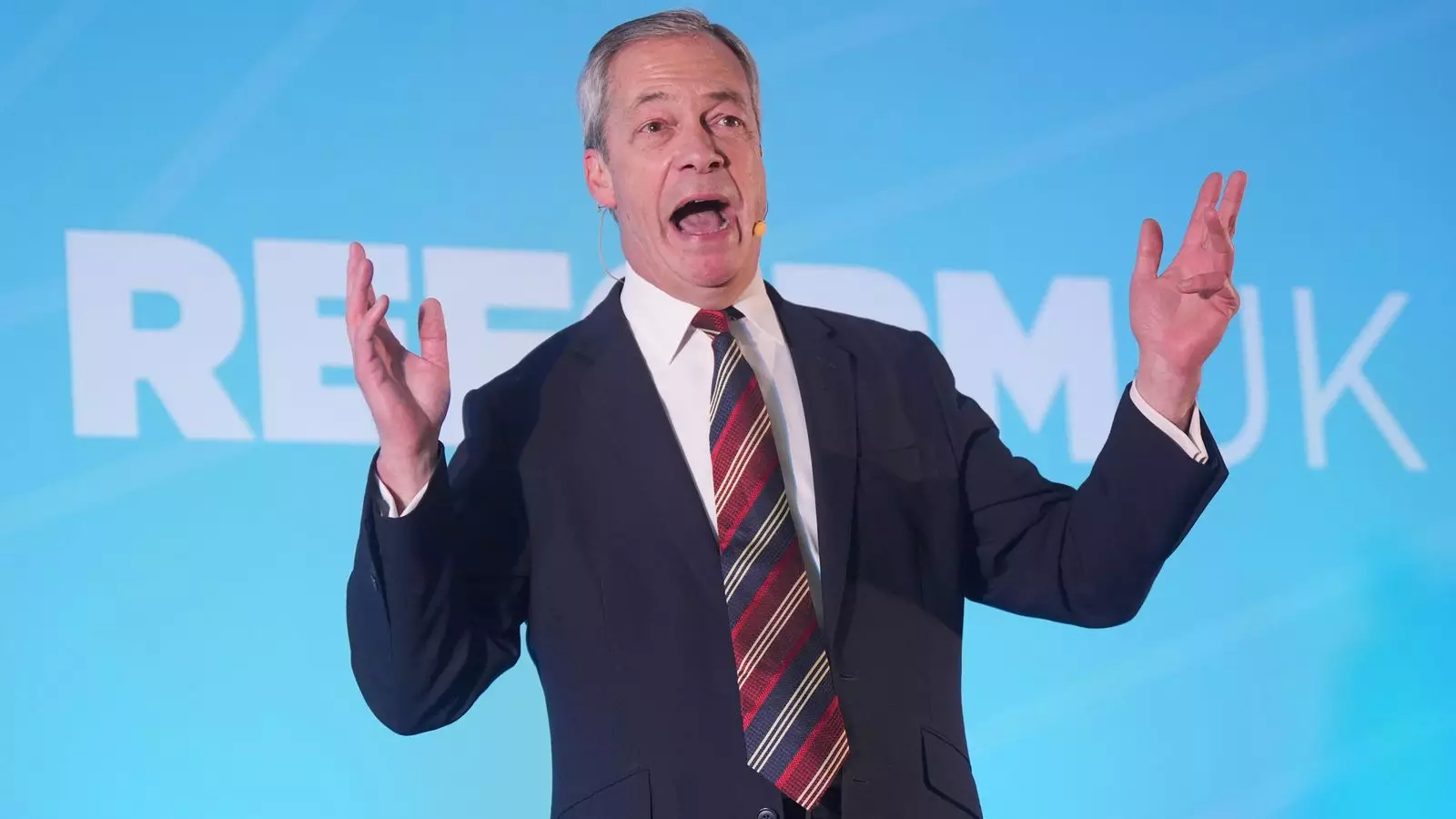Nigel Farage, the prominent figure in the UK political landscape, has recently communicated his unwavering stance in the face of criticism, particularly from billionaire entrepreneur Elon Musk. In a candid interview with Sky News, Farage addressed Musk’s comments that suggested he lacked the necessary qualities to lead Reform UK, the political party he founded. This moment illustrates the intersections of politics, personal ideology, and the complex relationships that evolve within them.
Farage’s response to Musk’s assessment reflects a multifaceted relationship between the two influential figures. Despite Musk’s criticism, Farage emphasized their friendship, dismissing the notion that he could be manipulated by anyone, including the tech mogul. “Of course we’re friends,” Farage stated, acknowledging Musk’s tendency to express his thoughts candidly, regardless of how they may affect their rapport. This duality presents a nuanced picture: while Farage seeks to maintain a personal connection with Musk, he remains steadfast in his convictions, reiterating that he cannot be compelled to alter his beliefs based on external pressures.
At the core of their disagreement lies not just personal views but pivotal political stances. Farage explicitly rejected Musk’s support for far-right activist Tommy Robinson, stating that Robinson’s ideologies do not align with the values of Reform UK. This assertion underlines Farage’s commitment to defining the boundaries of his party’s membership, emphasizing that individuals associated with controversial organizations, like the BNP, are not welcome. Here, Farage positions himself as a guardian of political integrity in a landscape often muddled by extremist rhetoric.
Farage’s criticism of Robinson demonstrates a conscious effort to distance Reform UK from far-right extremism, a clear attempt to reshape the party’s narrative amidst increasing polarization in British politics. He articulated his stance: “If people within Reform think Tommy Robinson should be a member of Reform and play a central role in Reform, that disagreement is absolutely fundamental.” This statement is particularly significant as it showcases his effort to establish a clear ideological framework for the party, differentiating it from far-right factions while attempting to attract a broader voter base.
Despite this ideological divergence, Farage remains optimistic about Musk’s potential support for Reform UK. He hinted that even with their disagreements, Musk’s past endorsements could lead to substantial financial backing for the party in the future. This perspective underscores an interesting paradox in politics: the willingness to maintain relationships with potentially contentious allies for the sake of political gain, all while striving to clarify the party’s identity.
Farage’s political narrative extends beyond personal relationships to encompass a critique of the current Labour government, specifically its devolution plans. He framed these initiatives as a potential suppression of democracy, arguing that postponing local elections under the guise of restructuring local governance is fundamentally undemocratic. “I thought only dictators cancelled elections,” he remarked, suggesting that the government’s tactics are reminiscent of authoritarian regimes leveraging power to control electoral outcomes.
This assertion brings forth an essential conversation about the health of democracy in the UK, where political maneuvers could be perceived as veiled attempts at preserving power at the expense of democratic principles. Farage’s critiques resonate with a segment of the electorate that feels disenfranchised by political elites, appealing to their desire for a more direct form of governance.
Finally, Farage addressed an interesting facet regarding the reluctance of many party members to speak publicly about their support for Reform UK. He attributed this reluctance to an “institutional bias against anybody that isn’t left of centre,” suggesting that societal perceptions may discourage open discourse about right-leaning ideologies. This commentary highlights the cultural challenges faced by parties like Reform UK, where political correctness can stifle meaningful debates about ideological differences.
Ultimately, Farage’s interactions with Musk and his unflinching commitment to his beliefs portray a complex picture of modern political leadership. As he navigates friendships, criticisms, and ideological battles, Farage exemplifies the intricate dance of maintaining political relevance while adhering to deeply held principles. Through his actions, he hopes to reshape the narrative surrounding not only his party but also the broader political discourse in the UK.


Leave a Reply